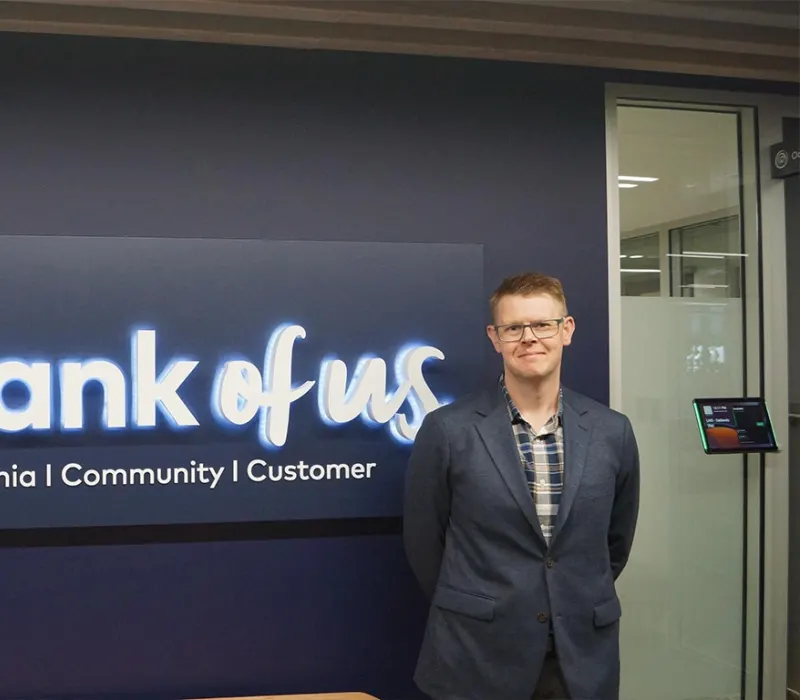“Even small pieces of personal data can be pieced together by scammers. That’s why it’s crucial to think twice before sharing anything online.”
Sam Groom, Bank of us Fraud & AML Operations Lead

At Bank of us, we take your privacy seriously. That's why we're proud to support Privacy Awareness Week 2025, an important reminder to safeguard your personal information in today's digital world. As technology becomes a bigger part of our daily lives, so too do the risks of things like fraud, identity theft and cybercrime.
“Privacy isn't something that just happens in the background,” says Sam Groom, Bank of us’ Fraud & AML Operations Lead. “It requires action — and awareness — from all of us, every day.”
Whether you're shopping online, managing your finances, or catching up on social media, taking steps to protect your personal data can go a long way. Here are some practical tips to help you stay safe online — and in real life.
Understand the importance of privacy
Your personal information — from your address to your banking details — is valuable. If it falls into the wrong hands, it can be used for things like identity theft or financial fraud.
“Even small pieces of personal data can be pieced together by scammers,” Sam explains. “That’s why it’s crucial to think twice before sharing anything online.”
Be mindful on social media
Social media can be a goldmine for scammers.
- Avoid sharing too much personal information (like your full birthdate or home address).
- Don’t click suspicious links, even if they appear to come from friends.
- Think twice before posting photos that might reveal more than you intended — such as kids in school uniforms or your current holiday location.
Secure your devices
Your phone, tablet, and computer store a lot of sensitive data. Protect them by:
- Installing reputable antivirus software.
- Keeping your operating system and apps up to date.
- Enabling device encryption where available.
Watch out for phishing scams
Phishing is one of the most common ways people are tricked into giving away personal information.
- Double-check the sender’s email address or phone number before clicking on links.
- Look for red flags like urgent demands or spelling mistakes.
- Never share passwords or personal info via email or SMS.
Avoid public wi-fi for sensitive transactions
Public Wi-Fi isn’t secure, so think twice before using it for banking or online shopping.
- Use a Virtual Private Network (VPN) if you need to connect in public.
- Turn off automatic Wi-Fi connections to avoid accidentally joining unsafe networks.
Keep your financial information safe
Your money is a key target for fraudsters.
- Monitor your bank accounts regularly for suspicious activity.
- Use secure payment methods like PayPal or credit cards when shopping online.
- Never share your banking details via email or text.
“Financial fraud is constantly evolving,” says Sam. “We see scams every day that are designed to look legitimate — but they’re anything but. If something feels off, stop and check with your bank.”
Talk about it
Privacy protection doesn’t stop with you.
- Have conversations with your family, friends, and colleagues about how to stay safe online.
- Encourage them to take simple steps like enabling two-factor authentication or updating their devices.
“The more we talk about privacy, the more empowered we all are,” Sam adds. “Awareness is one of the most powerful tools we have.”
Privacy Awareness Week is a great opportunity to reflect on your digital habits — and to make a few small changes that could protect you in a big way. Taking proactive steps now can help you avoid serious problems down the track.
Because when it comes to your privacy, a little effort goes a long way.
Stay safe. Stay smart. Stay private.
Read more about Privacy Awareness Week 2025
Visit our Safe Banking page for more tips on staying safe online.





